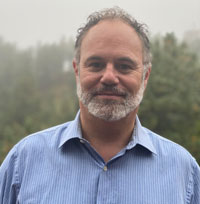Dear Colleagues,
This edition of the Bulletin features the latest books, publications and presentations to be announced by members of the IARPP community. In addition, I am pleased to include a warm letter of greeting from our new president, Sandra Toribio Caballero (Spain).
If you haven’t already renewed your annual IARPP membership, it is time to do so. Here is the link: https://iarpp.memberclicks.net/iarpprenewal2024. If you have trouble with the link, please email: office@iarpp.net
And if you wish to register for the June conference to be held in Mexico, you can do so here: https://iarpp.ce-go.com/iarpp-conference-2024-mexico
This month marks five years since Lew Aron’s passing. Lew was, as many of you know, IARPP’s founding president, a towering yet always approachable presence in our community from the early days of relational psychoanalysis. He first published his ideas on the different implications of one- and two-person psychologies in 1990, and his well-known paper, “The Patient’s Experience of the Analyst’s Subjectivity,” was featured in Psychoanalytic Dialogues’ inaugural issue a year later. His seminal contribution, A Meeting of Minds: Mutuality in Psychoanalysis, followed in 1996. In addition to elaborating so many central tenets of relational thinking, most especially the idea of a reciprocal yet asymmetrical analytic relationship, Lew ran NYU’s Postdoctoral Program from 1998 until his death. Not only did he maintain his ongoing dedication to scholarship, both through his prolific writing and his editorial shepherding of so many other voices in the field, Lew also impacted hundreds of analysts through his revered study groups, and he generously mentored and encouraged many more besides. He was an amazing presenter – deeply knowledgeable, integrative, always vivid and dynamic – and he played rock guitar with the same blend of seriousness and joy, precision and fervor. He loved psychoanalysis and in turn was beloved by our psychoanalytic community.
To help us measure Lew’s lasting legacy, as well as the enormity of his loss, I’ve asked several IARPP members who worked closely with Lew throughout his career to share some reflections from the vantagepoint of the nearly five years since his passing. Please click here for their comments.
A summary of the announcements contained herein:
Tomás Casado-Frankel (USA) has co-authored Early Relational Trauma and the Development of the Self: A Model of Therapeutic Accompaniment, which closely follows a therapist-in-training’s intense two-year treatment of a pregnant teenage girl, weaving together the life experiences of each. Building a therapeutic home in the clinical relationship and in a therapeutic community setting inscribes what the authors call a model of therapeutic accompaniment.
In From Breakdown to Breakthrough: Psychoanalytic Treatment of Psychosis, her tenth book, Danielle Knafo (USA) examines psychoanalytic work with psychotic patients. She and her co-author advise therapists not only to read and respond to the messages embedded in the psychotic symptoms but also to recognize and utilize the non-psychotic aspects of the patient in facilitating recovery.
Louis Rothshild (USA) has published Rapprochement Between Fathers and Sons: Breakdowns, Reunions, Potentialities which develops a psychoanalytically affirmative portrait of fatherhood through the idea that fathers’ attunement to relational mutuality and intimacy can be an important source of their sons’ flourishing. As a critique of gendered rigidity, it explores the difficulty of integrating nurturing capacities into conceptions of masculinity.
A second edition of Mary Lynne Ellis’s (UK) Time in Practice: Temporality, Intersubjectivity, and Listening Differently, is now available. This revised volume includes a new discussion of loss, vulnerability, mortality, inequalities, and powerlessness associated with the profound impact of the coronavirus, climate change, and the Ukraine war, building on the book’s exploration of the diverse ways in which individuals ‘live’ time consciously and unconsciously.
From Barbara Pizer (USA) comes a new book, Body Words and the Analyst’s Use of Self: Transforming the Unspeakable in Clinical Process in which a vivid unfolding of analytic process emerges. Estelle Shane admiringly notes “the poetry in Pizer’s prose that her old readers have come to expect and new readers, dreading theory-heavy, unimaginative writing, will welcome.” Additionally, Pizer has published a paper centering on what she has dubbed the outrageous interpretation.
Daniel Shaw (USA) has written two papers exploring shame as a cause of self-alienation and as sequelae to the traumatizing narcissist’s relational system which can render sufferers vulnerable to cult recruitment.
Brent Willock (Canada) analyzes the perplexing case of Oscar Pistorius, the Olympic athlete who killed his girlfriend during sudden arousal from sleep, by recruiting knowledge of dreaming and parasomnias (sleep disorders), perspectives not considered in Pistorius’ trial.
Ruth Lijtmaer (USA) has been presenting on immigration trauma, the challenges of working clinically with political material, and the interrelation of trauma, violence, and silence.
If you would like news of your recent publications and/or presentations to be announced in The IARPP Bookshelf, please send the following materials to me at MattAibel [@] gmail.com by Sunday, May 26, 2024 in order for your news to appear in the June edition:
- Title of your recent or upcoming publication(s)/presentation(s) (We do not publish announcements of IARPP Conference presentations.)
- An abstract or brief description of the content (around 150 words)
- Link to a publisher, if applicable, so that members might access or purchase a copy
- Book cover photo or artwork, if applicable
- Digital photograph of yourself (jpeg format)
- Professional contact information as you would like it to appear publicly (city/town in which you practice or work and your email address)
- Book authors, please provide a brief bio of 75-90 words
- Presenters, please spell out organizational acronyms and include the location, if in-person
Best wishes,
 Matt Aibel, LCSW
Matt Aibel, LCSW
New York, NY
Email Matt Aibel

